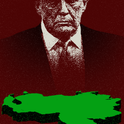Presidential Leadership and the Creation of the American Era
by Joseph S Nye, Jr (Princeton University Press, £19.95)
Does a president make any difference to foreign policy? The answer is so obvious that the question shouldn’t need to be asked. But as Joseph Nye correctly writes in his anodyne new book, most theorists of international relations leave too little room for personality, mistakes and beliefs in their grand ideas of global politics. Career politicians have never made the same mistake, and neither have historians. Still, in this slim volume, Nye sets out to correct the problem in political science by quantifying how certain presidents contributed to the progress of what Henry Luce called the “American Century.”
This is not the most challenging of intellectual tasks. Nye, a Harvard academic best known for inventing the terms “soft power” and “smart power,” sets things up at a rather glib level from the start. Who were the best presidents of the “American era,” he asks, and who were the worst? Historians have long played the parlour game in which they rank presidents. In the most recent survey, conducted by C-SPAN in 2009, Franklin Roosevelt, Harry Truman, Theodore Roosevelt and Dwight Eisenhower were the twentieth-century presidents who ranked highest in international relations. Such polls are harmless fun, if indicative of the state of the historical profession. Nye, though, tries to elevate presidential top trumps into academic theory.
Nye argues two things. First, taking his cue from the apparently burgeoning field of leadership theory, he suggests that in foreign policy leadership does not need “transformational” aims to be effective. Leaders, he argues, can be “transactional” and still reach the ranks of greatness, not least because prudent but non-prophetic managers (Eisenhower and George HW Bush) understand Nye’s Hippocratic first rule of policymaking: “do no harm.” In that sense, this is a teaching book, aimed both at Nye’s Kennedy School students and colleagues and to the current roster of American leaders. The poorest presidents, in this view, are those with the boldest of rhetorical aims (George W Bush) and especially those who failed to back up rhetoric with action (Woodrow Wilson).
He then tries to suggest ways in which we might quantify the impact of a leader. It is here that things start to go awry. With a history hat on, his lengthy counterfactual reasoning, beyond relying on a Philip Roth novel as a primacy source, falls into the usual trap, as if there would have been no Cold War with Henry Wallace or Robert Taft at the helm. As a political scientist, he tries to infer how far leadership explains things that structure (defined as economics) does not.
Amidst these counterfactuals, Nye presents the rise of the United States as inevitable, despite the fact that this was never clear in the 1930s. Ever the exceptionalist, he sees serving the “national interest” as an ethical ideal, defining that interest as the maintenance of American primacy. “The smooth creation of an American era” was, for Nye, automatic, and yet it also had to be created by Truman and Roosevelt, the heroic mid-century presidents. Never is the value of this dominance questioned. Those presidents who grappled with perceived threats to primacy, or who failed to manage primacy smoothly, do not receive grades or even cursory attention, however much it is now becoming clear that Richard Nixon and Jimmy Carter laid the groundwork for Ronald Reagan’s rekindling of American power.
Nye is so secure in his ethical and policy beliefs that that he is interested only in judging the past, not explaining or questioning it. In a way that would shock historians—who often take a moral stance in their work but ought never to play the “hanging judge,” as David Knowles puts it—Nye seeks to assign “credit or blame” to those presidents in the dock. He devotes half his book to an ethical evaluation of his presidents, but it is hard to keep a straight face when reading the first “ethical scorecard,” in which he grades a president “good,” “mixed” or “bad.” It is no coincidence that the presidents he sees most prudently extending American hegemony abroad are also those he deems ethically best, and those who, given America’s contemporary economic position relative to the rest of the world, had the easiest task.
So, which presidents are trumps? Well, those who had a “careful understanding of the context of change,” who understood the importance of image and cultural attraction, and who did not put too much faith in “transformational objectives” or an “inspirational style.” In other words, those proto-Clintonians who deploy Nye’s own “smart power,” confident in exceptionalism but not unnecessarily rash in buttressing it. (Nye served in the Defense Department under Bill.) Only those who, in Nye’s view, achieved the aims they set forth can qualify. Wilson and Theodore Roosevelt, for all that they taught Americans how to enter global politics, were less leaders than ‘teachers.” He is rightly sceptical, too, about how much Ronald Reagan had to do with the fall of the USSR, and therefore about his true effectiveness.
That leaves him with his aces, all conventional choices however often he suggests otherwise: FDR, Truman, Eisenhower and the first Bush. That is, two inspirational, transformational prophets of the American era, and two prudent managers; two Democrats of the old guard, and two liberal Republicans. Looking forward, it’s a combination of the best traits of all four (for the worst of each is ignored) that make for Nye’s ideal leader in a “global information age,” one in which the United States does not “decline” but relates and shares.
Is Obama the answer? It’s not clear. Hillary Clinton is certainly lauded, which is unsurprising given her intellectual debt to Nye. Nye’s attacks on historical presidents for aiming to do too much, and for failing to back up rhetoric with action, often read like coded criticism of the president. When he finally writes specifically about Obama, however, the praise flows. Perhaps when leaders are still in power, Nye goes soft.
Does a president make any difference to foreign policy? The answer is so obvious that the question shouldn’t need to be asked. But as Joseph Nye correctly writes in his anodyne new book, most theorists of international relations leave too little room for personality, mistakes and beliefs in their grand ideas of global politics. Career politicians have never made the same mistake, and neither have historians. Still, in this slim volume, Nye sets out to correct the problem in political science by quantifying how certain presidents contributed to the progress of what Henry Luce called the “American Century.”
This is not the most challenging of intellectual tasks. Nye, a Harvard academic best known for inventing the terms “soft power” and “smart power,” sets things up at a rather glib level from the start. Who were the best presidents of the “American era,” he asks, and who were the worst? Historians have long played the parlour game in which they rank presidents. In the most recent survey, conducted by C-SPAN in 2009, Franklin Roosevelt, Harry Truman, Theodore Roosevelt and Dwight Eisenhower were the twentieth-century presidents who ranked highest in international relations. Such polls are harmless fun, if indicative of the state of the historical profession. Nye, though, tries to elevate presidential top trumps into academic theory.
Nye argues two things. First, taking his cue from the apparently burgeoning field of leadership theory, he suggests that in foreign policy leadership does not need “transformational” aims to be effective. Leaders, he argues, can be “transactional” and still reach the ranks of greatness, not least because prudent but non-prophetic managers (Eisenhower and George HW Bush) understand Nye’s Hippocratic first rule of policymaking: “do no harm.” In that sense, this is a teaching book, aimed both at Nye’s Kennedy School students and colleagues and to the current roster of American leaders. The poorest presidents, in this view, are those with the boldest of rhetorical aims (George W Bush) and especially those who failed to back up rhetoric with action (Woodrow Wilson).
He then tries to suggest ways in which we might quantify the impact of a leader. It is here that things start to go awry. With a history hat on, his lengthy counterfactual reasoning, beyond relying on a Philip Roth novel as a primacy source, falls into the usual trap, as if there would have been no Cold War with Henry Wallace or Robert Taft at the helm. As a political scientist, he tries to infer how far leadership explains things that structure (defined as economics) does not.
Amidst these counterfactuals, Nye presents the rise of the United States as inevitable, despite the fact that this was never clear in the 1930s. Ever the exceptionalist, he sees serving the “national interest” as an ethical ideal, defining that interest as the maintenance of American primacy. “The smooth creation of an American era” was, for Nye, automatic, and yet it also had to be created by Truman and Roosevelt, the heroic mid-century presidents. Never is the value of this dominance questioned. Those presidents who grappled with perceived threats to primacy, or who failed to manage primacy smoothly, do not receive grades or even cursory attention, however much it is now becoming clear that Richard Nixon and Jimmy Carter laid the groundwork for Ronald Reagan’s rekindling of American power.
Nye is so secure in his ethical and policy beliefs that that he is interested only in judging the past, not explaining or questioning it. In a way that would shock historians—who often take a moral stance in their work but ought never to play the “hanging judge,” as David Knowles puts it—Nye seeks to assign “credit or blame” to those presidents in the dock. He devotes half his book to an ethical evaluation of his presidents, but it is hard to keep a straight face when reading the first “ethical scorecard,” in which he grades a president “good,” “mixed” or “bad.” It is no coincidence that the presidents he sees most prudently extending American hegemony abroad are also those he deems ethically best, and those who, given America’s contemporary economic position relative to the rest of the world, had the easiest task.
So, which presidents are trumps? Well, those who had a “careful understanding of the context of change,” who understood the importance of image and cultural attraction, and who did not put too much faith in “transformational objectives” or an “inspirational style.” In other words, those proto-Clintonians who deploy Nye’s own “smart power,” confident in exceptionalism but not unnecessarily rash in buttressing it. (Nye served in the Defense Department under Bill.) Only those who, in Nye’s view, achieved the aims they set forth can qualify. Wilson and Theodore Roosevelt, for all that they taught Americans how to enter global politics, were less leaders than ‘teachers.” He is rightly sceptical, too, about how much Ronald Reagan had to do with the fall of the USSR, and therefore about his true effectiveness.
That leaves him with his aces, all conventional choices however often he suggests otherwise: FDR, Truman, Eisenhower and the first Bush. That is, two inspirational, transformational prophets of the American era, and two prudent managers; two Democrats of the old guard, and two liberal Republicans. Looking forward, it’s a combination of the best traits of all four (for the worst of each is ignored) that make for Nye’s ideal leader in a “global information age,” one in which the United States does not “decline” but relates and shares.
Is Obama the answer? It’s not clear. Hillary Clinton is certainly lauded, which is unsurprising given her intellectual debt to Nye. Nye’s attacks on historical presidents for aiming to do too much, and for failing to back up rhetoric with action, often read like coded criticism of the president. When he finally writes specifically about Obama, however, the praise flows. Perhaps when leaders are still in power, Nye goes soft.












